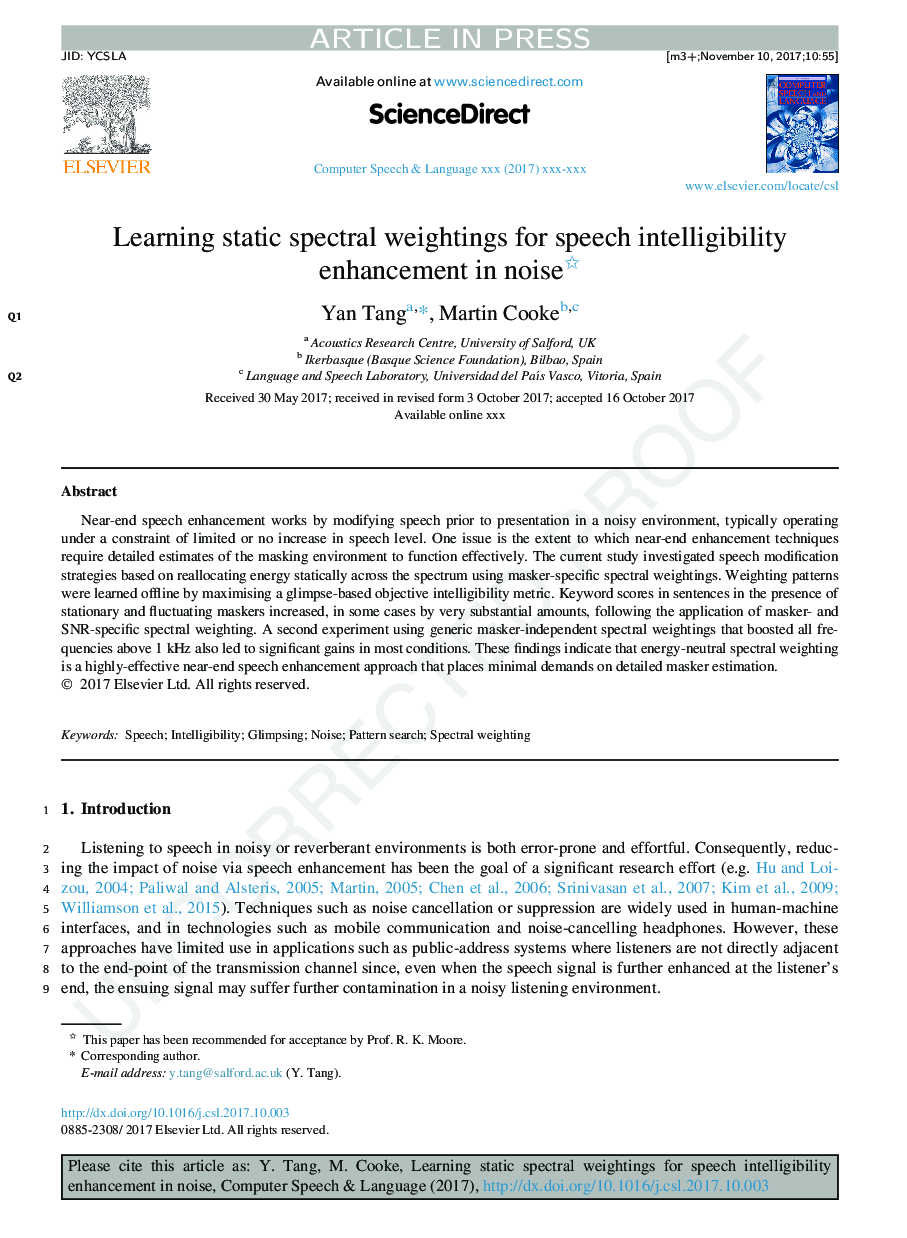| Article ID | Journal | Published Year | Pages | File Type |
|---|---|---|---|---|
| 6951490 | Computer Speech & Language | 2018 | 16 Pages |
Abstract
Near-end speech enhancement works by modifying speech prior to presentation in a noisy environment, typically operating under a constraint of limited or no increase in speech level. One issue is the extent to which near-end enhancement techniques require detailed estimates of the masking environment to function effectively. The current study investigated speech modification strategies based on reallocating energy statically across the spectrum using masker-specific spectral weightings. Weighting patterns were learned offline by maximising a glimpse-based objective intelligibility metric. Keyword scores in sentences in the presence of stationary and fluctuating maskers increased, in some cases by very substantial amounts, following the application of masker- and SNR-specific spectral weighting. A second experiment using generic masker-independent spectral weightings that boosted all frequencies above 1Â kHz also led to significant gains in most conditions. These findings indicate that energy-neutral spectral weighting is a highly-effective near-end speech enhancement approach that places minimal demands on detailed masker estimation.
Related Topics
Physical Sciences and Engineering
Computer Science
Signal Processing
Authors
Yan Tang, Martin Cooke,
